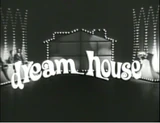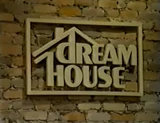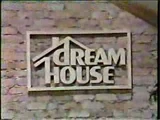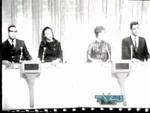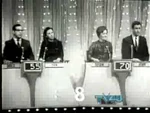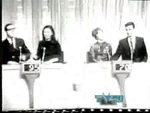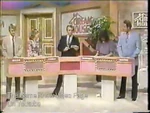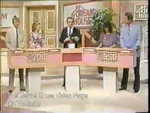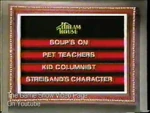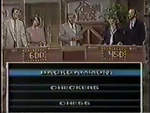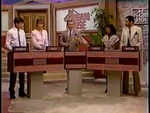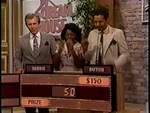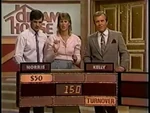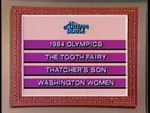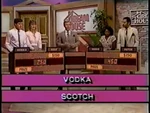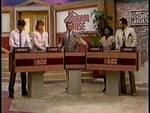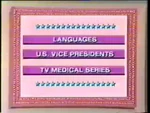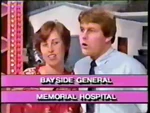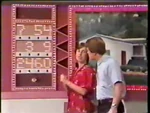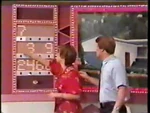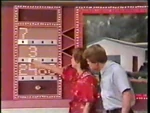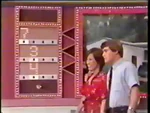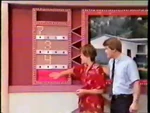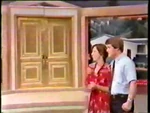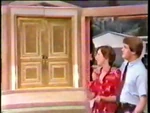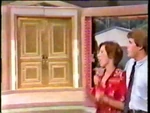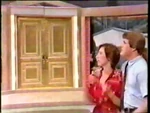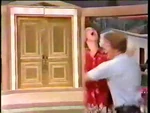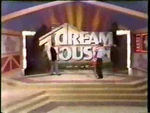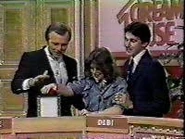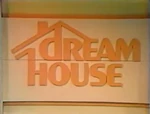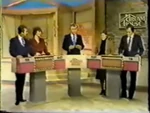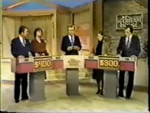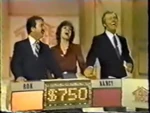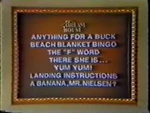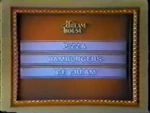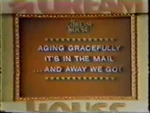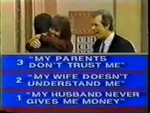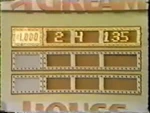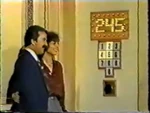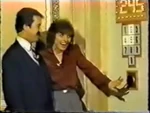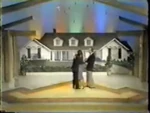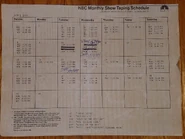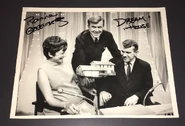| Hosts | |
| Mike Darow (1968–1970) Bob Eubanks (1983–1984) | |
| Hostess | |
| Debbie Bartlett (1983–1984) Cheryl Allen (Sub, 4/84) | |
| Announcers | |
| Chet Gould (ABC) Rod Roddy (1983 Pilots) Johnny Gilbert (NBC) Jerry Bishop (NBC Sub. 10/83) | |
| Broadcast | |
| ABC Primetime: 3/27/1968 – 9/19/1968 ABC Daytime: 4/1/1968 – 1/2/1970Pilots: 2/2/1983 NBC Daytime: 4/4/1983 – 6/29/1984 | |
| Packagers | |
| Don Reid Productions ABC Productions (1968–1970) Group W Productions (1983) Lorimar (1984) | |
1960s SERIES SPIEL: "This is (insert wife's name) and (insert husband's name and last name of the couple), and challenging them: (insert wife's name) and (insert husband's name and last name of the couple). The prize, their dream of a lifetime Dream House! Where young married couples can win the home of their choice built for them somewhere in the United States. A dream house and furnishings worth more than… $40,000. And now, here's your host, Mike Darow!"
1983 PILOT SPIEL: "Welcome to Dream House. These are our returning champions, Peggy and Tim Curry. They're making their 3rd appearance on Dream House. So far, they've won a new kitchen, a complete bedroom, and cash. All worth over $14,000. They're playing for this beautiful tudor home that features 4 spacious bedrooms and a complete family room built by Ryland Homes. It's worth over $100,000. And these are our challengers, Ron and Nancy Ashtenende. They have 2 children, 2 dogs, and live in a 2-bedroom apartment. They need a house. They're hoping to win this gracious colonial home with a master suite and 3 family bedrooms. Built by the General Development Corporation. A house worth over $100,000. All this can come true, today on Dream House! And now, here's the host of Dream House, BOB EUBANKS!"
1983 EARLY SERIES SPIEL: "Welcome to Dream House. Today, one of these 2 couples could win a fabulous new home. Will it be (insert couple)? Today, they'll make their (insert number) attempt to win this (insert type of home). Or, will it be (insert couple)? Today, on their first appearance in Dream House, they're playing for the (insert type of home). And now, here's the man with the key to your dream house, Mr. Bob Eubanks!"
1983-84 2ND MAIN GAME FORMAT SPIEL: "Welcome to Dream House, where in the past (insert number) months, we have given away over (insert amount) in houses, cash and prizes and one of these couples will add to that total. This is (insert couple); Today, they'll make their (insert number) attempt to win this (insert type of home). And this is (insert couple) who is trying to win this (insert type of home). And now, here's the man with the key to your dream house, Mr. Bob Eubanks!"
1984 3RD MAIN GAME FORMAT SPIEL: "Today on Dream House, our returning champions (insert couple) will make their (insert number) attempt to win a dream house and prizes worth over $100,000. And who in our audience will be their challengers? Well, today, get set for a chance to make your dreams come true, (insert couple)! And now, here's the man with the key to your dream house, Mr. Bob Eubanks!"
Dream House featured married couples answering questions to win a new house.
ABC Version[]
Two couples competed in this two year old version. Mike would ask a question and the first player to buzz in got to answer. If s/he was right, the couple received 5 points, but an incorrect answer gave the opposing couple(s) a chance to answer for 10 points. When a player answered correctly, s/he was locked out of the next question. At two minutes (2:00) left in the game (which lasted from four to five minutes) point values were doubled.
At the end of the game, the "Catch-Up Round" was played, where the couple that was trailing chose one last question from 10 to 50 points. If they answered correctly, then the other couple got one last chance. The couple with the most points won the game and a room full of furniture. The point values doubled in 1969 during the three-couple format.
Couples who won seven rooms on the daytime version (four on the 1968 primetime version) won either a new house of their own (worth over $40,000, including $7,000 to purchase land) or $20,000 in cash.
Beginning in 1969, three couples competed in the first round which was mostly played the same as the two-couple format, except that only during that first round would everybody play every question. The two highest-scoring couples advanced to the next round, played exactly the same as the previous two-couple format. Five-time champions were offered an airplane by surrendering the chance to win two more games, and seven-time champions won their choice of either their new house or $20,000 cash.
NBC Version[]
Main Game[]
Two married couples (one of them being returning champions) competed. Bob would read a true/false toss-up question and the first player to buzz in got to answer. If that player buzzed in before the question was finished, the opposing couple got a chance to answer. If s/he was right, the couple received $50 and control of a board with four categories, but an incorrect answer gave the $50 and control to the opposing couple. The couple in control chose one of the categories, Bob would read a multiple-choice question related to the chosen category with three possible answers, and the couple would then choose an answer. Then after the couple gave their answer, the opposing couple could challenge and give their own answer (they could challenge no more than twice). The couple with the correct answer received $100 (plus $50 for an unsuccessful challenge). The round continued until all four categories were used.
Two rounds were played and the couple in the lead after Round 1 won a prize; if Round 1 ended in a tie, one true/false toss-up was played with the winners of that question winning the prize. Round 2 was played the same as the first round but with four new categories, plus a couple could double the value of a question before it was asked. The couple with the most money after the two rounds won the game; if the game ended in a tie, one final true/false toss-up was played with the winners of that question winning the game. The winning couple won a room of furniture and went to the bonus round. Win or lose, each couple got to keep whatever cash and/or prizes they've earned.
Changes in the Front Game[]
Beginning in April 1984, each couple had a "Money Machine" which determined the value of a question before it was asked. The question could either be worth $50, $100, or $150. Also on the Money Machine was a "Prize" space where a correct answer won the couple a prize in addition to the money (on celebrity games the prize space was replaced by another space marked "Double $$ (Dollars/Money)" which of course doubled the value), but the "Money Machine" also had a space called "Turnover", which gave control to the opposing team, and in Round 2 only, there was a space called "No. Off", which meant that a correct answer knocked off an extra wrong number in the bonus round if they won the game. Unlike the first format, there was no option to double the value of a question in Round 2. There was a maximum of two prizes that can be won in each round.
In addition, players of the same gender faced off in the true/false toss-ups (except in the tiebreaker); also, the number of choice of answers for all questions was reduced from three to two, making it easier for either couple to win the money. Plus, opposing couples could challenge on every question.
Finally, if a couple won by $500 or more, they won a $500 cash bonus (originally a bonus prize); if a couple won by $1,000 or more, they won a new car.
Bonus Round[]
The winning couple tried to win their dream house by guessing a combination to unlock the "Golden Doors". They were shown 3 rows of 4 numbers, for example:
9852
4982
5984
Each time the champions made it to the bonus round, a wrong number was removed from the lock. For a brief period, a wrong number was removed at the start of the champions first trip to the bonus round, for most of the run, however, a wrong number wasn't. In 1984, a wrong number could also be removed at the start of the bonus round if the couple answered a question correctly in the front game if they landed on "No. Off" on their "Money Machine".
The couple was shown three categories and they chose one. Bob would then ask the couple three questions related to the chosen category, each with two possible answers. Each correct answer removed another wrong number. Answering the first question correctly removed a wrong number from the top row, answering the second question correctly removed a wrong number from the middle row, and answering the last question correctly removed a wrong number from the bottom row.
After all three questions were asked and any wrong numbers removed, the couple entered the combination. It took a 3 number combination to open the "Golden Doors" with the couple choosing a number from the top row as the first number in the combination, choosing a number from the middle row as the second number, and choosing a number from the bottom row as the third number. Once the combination was entered, it couldn't be changed.
The couple then pressed the time-release bar. When they did, if the "Golden Doors" lit up and opened, the combination was correct, the couple won their dream house worth over $100,000 and retired undefeated. If not, Bob would reveal the correct combination and the couple came back the next show.
Couples could also win their dream house if they remained champions for 7 days, After the show's first two weeks on the air, it was reduced to 5 and later raised to 6. On days when a championship couple could win the house instantly, a plunger would pop out of Bob's podium (which was a "hotline switch" or "circuit breaker") and all the couple had to do was press it and the "Golden Doors" automatically opened.
Houses in this version cost between $70,000 and $80,000 with up to $15,000 awarded for the land.
Pilot[]
There were several differences in the pilot, taped in February 1983 on a slightly altered set.
Main Game[]
- There were seven categories instead of four, with one of the Round 2 categories being the Double Dollars category.
- Couples were not restricted just two challenges; they could challenge as many times as they wished. And if they didn't challenge but the opposing couple was wrong, the opposing couple still won $50 ($100 in case of the Double Dollars category).
- In Round 2, a couple could pass the question to the other couple, but could not challenge if they didn't know the answer, with a successful pass being worth $50. The couple couldn't pass if they chose the Double Dollars category.
- $350 ended Round 1 and won the couple who reached that amount a prize.
- The first couple to reach $750 or more won the game.
Bonus Game[]
In the end game, the three categories were questions posed to the general public, and the couple had to pick what they thought was the most popular answer, earning $1,000 for the most popular, $500 for second, and $250 for third. Each answer also increased the odds of opening the "Golden Doors"; winning $250 earned three picks from ten, $500 earned three from nine, and $1,000 earned three from seven.
Number of Episodes[]
322 (1983–1984 NBC version; Don Reid's son mistakenly said the final count was 395)
Music[]
1983 Pilot House Music - by Score Productions
1983 Main - "Charade" by Michael Malone (the theme was also used in the unsold pilot Let's Get Personal hosted by Chuck Woolery in 1982)
The cue on the pilot of the 1983 version was originally a prize cue for The Price is Right
Inventors[]
Don & Richard Reid
Rating[]
Trivia[]
- Although NBC ceased wiping game shows by the time the 1983-84 revival of the show was in production, only a small number of episodes from the revival survive, mostly from off-air recordings.
- All of the original studio master tapes (as well as the other various production materials and music from the show) were held in the home of Don Reid, and got destroyed in a flood.
Gallery[]
Merchandise[]
A board game based on the ABC era was made by Milton Bradley.
Studios[]
Colonial Theater, New York City, NY (1960s Version)
NBC Studio 3, Burbank, CA (1980s Version)
Links[]
The Dream House Fan Page for the 1980s series
Rules for Dream House (NBC) @ Loogslair.net
Golden Doors Flashgame
YouTube Videos[]
A montage of four couples who won their dream houses
Ray & Allison Wojdynski won their dream house on their 1st day
Larry & Rose Kotel won their dream house on their 2nd day
Full Episodes[]
Series premiere (original broadcast)
Series Finale
Series finale, Part 1 (first few seconds missing)
Series finale, Part 2
Series finale, Part 3 (credits missing)
Series Finale in Full
